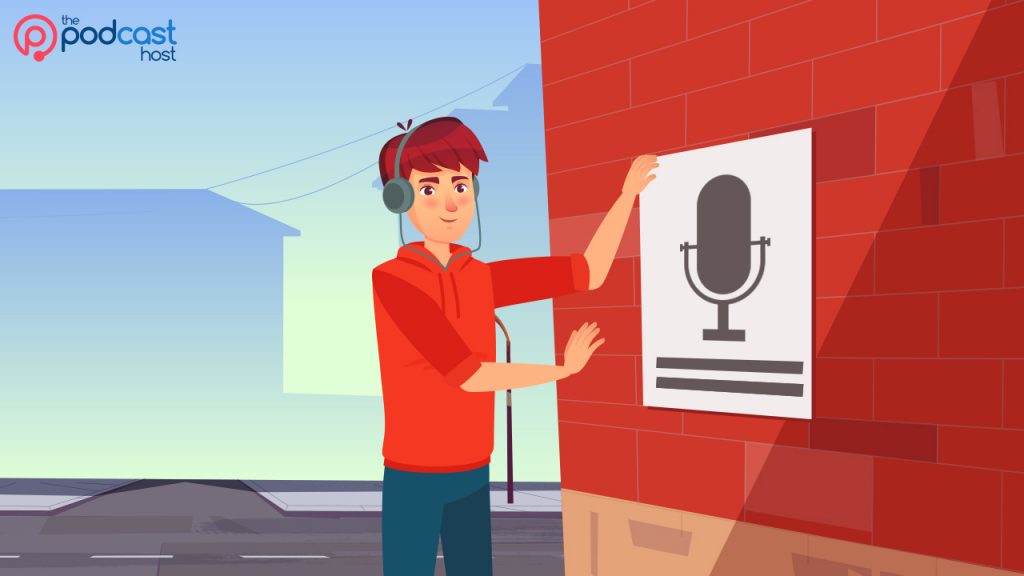Marketing a podcast is hard work.
There’s a common misconception that once you hit “publish,” your work on that episode is done—but that’s really where the work begins. Because while a podcast with no listeners is still a podcast, it’ll never really live up to its full potential.
Podcast promotion is one part art, one part science, and one part guesswork. What works for you might not work for everyone else. However, there are some common mistakes that will definitely not work for any podcaster. These are five podcast promotion mistakes you’ll want to avoid.
1. Putting Your Eggs in One Basket…
Every time Google changes its algorithm, there are a ton of bloggers that rely primarily on search engine optimization, left to scramble because their traffic dives. Now, podcasts and blogs are not the same. But, the idea behind this is.
Relying on only one promotional channel can leave you strapped if something happens to it. And, “something” happens more often than you think.
One of the biggest podcast promotion mistakes, related to throwing all your eggs in the same basket, is to rely solely on social media for content promotion. Unlike your own email list, you do not own your audience on a social media platform (you also give up some rights to the content you post there too, but that’s a problem for another time).
A social media platform can (and has the right to) limit, suspend, or delete your account without notice. This happens more frequently than we like to talk about. And, when it does, you’re left without access to whatever audience you’ve built there.
This idea is hard for many to understand, because, well, how could they? But I had a client once that had not one but two Instagram accounts closed without notice or a way to get it back.
The moral of the story? Make sure your promotion strategy is bigger than just a Twitter profile.
2. … But Also, Putting Your Eggs in Too Many Baskets
To inadvertently contradict our last point, doing the opposite is also ill-advised.
I’m willing to bet you do not have an entire marketing team behind you, making sure your podcast gets its due promotion.
The time you need to dedicate to sending out a weekly newsletter to your email list, publishing daily to three different social media platforms, and running a twice-weekly blog that goes along with your podcast, adds up quickly. On top of your production duties, you’re almost looking at a full-time job.
One of the big marketing mistakes that podcasters make is to think they must market everywhere to be successful. You don’t. Your best bet is to narrow down your marketing focus to a few channels and grow them. When they’re up and running, and you ideally have a little money flowing in, then expand (preferably by outsourcing).
Consistent quality over quantity wins the race. So, narrow down your focus to one social media platform, send a single monthly email, and optimize your podcast script as a blog post. Don’t bite off more than you can chew, because a poorly run marketing strategy isn’t going to help you out.
3. Not Using a CTA
A “call to action” or CTA is that thing that tells someone who’s looking at a piece of content or an advertisement what to do with it. These are simple, small actions such as “click on this link for more information” or “stream our latest podcast episode on Spotify” that are easy for your target audience to perform, and, most importantly, provide them some benefit.
You might think that including one of these is obvious, but you’d be surprised how often I come across marketing content that doesn’t have any. We often think that simply dropping a piece of content in front of someone will compel them to look further into it. But, that’s not the case.
If you want someone to listen to your podcast, download your eBook, or purchase your product, you not only need to sell it to them, but you need to make it as easy as possible. Tell them what you want them to do (listen to the full episode!), tell them how they can do that (find it on your favorite podcast app!), and make it as easy as possible (like giving them a link).
4. Not Repurposing Your Podcast Content
A single podcast episode is often seen as a one-and-done piece of content.
We put all of this effort into making an episode, but that work seemingly dies off as soon as it’s published and we get to work on the next one. Hours spent re-working episode outlines, fiddling with scripts, recording the copy, and fine-tuning the editing, is essentially washed down the drain, because we do nothing with it.
That single piece of content could be a whole collection of information to help you promote your podcast episode. You can repurpose your podcast script into your blog post, make great social media content out of your best quotes, cut your audio into small sharable clips, and more. There are countless ways you can reach your target audience without doing a whole bunch of extra work.
5. Failing to Engage With Your Audience
It doesn’t matter if you’re Tom Hanks promoting your next Hollywood heavy hitter, or the chocolate shop around the block: you need to engage with your audience.
Engagement looks different for everybody, but the end goal of it is the same. You need to connect with your audience on a personal level. It’s that personal bond that turns them from casual listeners to super fans who help you promote your show (word of mouth and personal recommendations are still two of the strongest forms of marketing).
Engaging with your audience builds trust, humanizes your brand, and helps you go further.
Marketing Your Podcast Right
Marketing is one of those areas where there is rarely one right way to do it, but many wrong ways that don’t work for your specific show. The key to figuring out how you should be promoting your show is to dig into your target audience, figure out what they like, and what the best way to reach them is.
Running a successful podcast isn’t all about your audience numbers. But if you’re not seeing growth, it’s time to revisit your promotion strategy. Make sure you’re not wasting valuable time and effort on something that won’t work.
Finally, you might think about using a ‘Podcast Maker’ tool like Alitu to free up production time, letting you spend more on the content and promotion. Alitu lets you record, edit and distribute your show in one single place. And the newly launched transcription feature can also be a great tool in your marketing strategy, helping you to be found through search engines.
Author Bio: By Tae Haahr of ThePodcastHost.com – One of the original and biggest ‘how to podcast’ resources on the web, and Alitu the ‘Podcast Maker’ tool.


